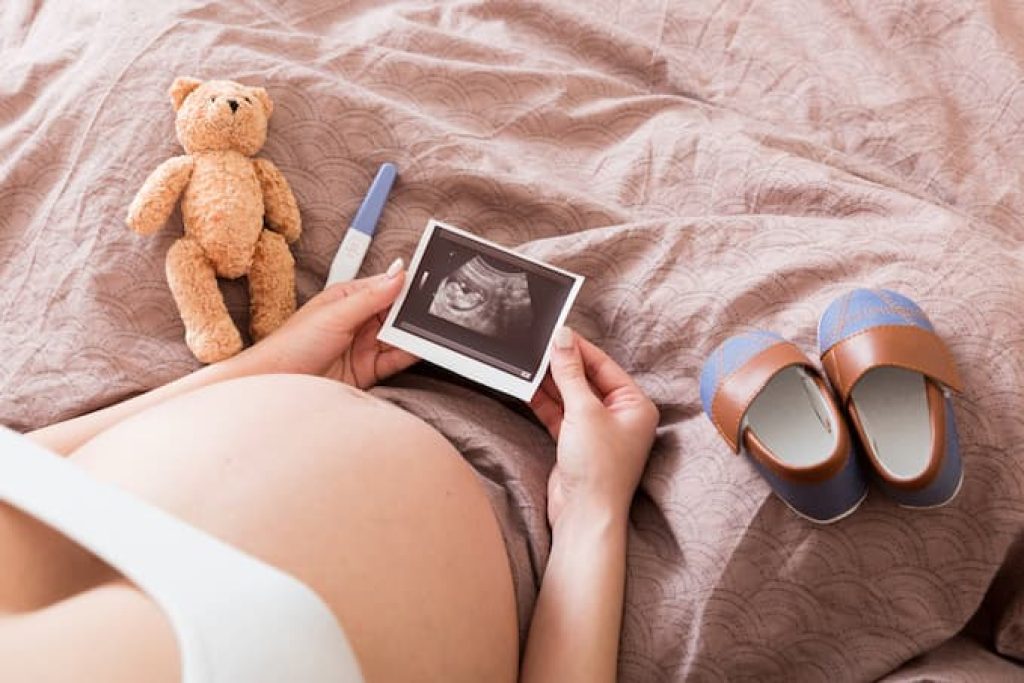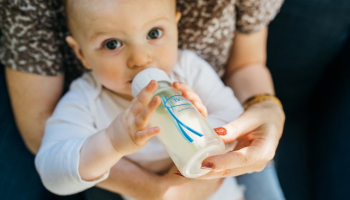
Pregnancy is a crucial time for both the mother and the unborn baby. The mother’s lifestyle and nutritional choices can significantly impact the baby’s health and development. This is the time for the mother to take care of her health for her baby. If the mother has not been leading a healthy lifestyle, this is the time to consider a cleansing program. Because you are pregnant, you have to be careful, as just any detox drugs or diet may be risky for you and your baby.
It is not uncommon for women to have a hard time dealing with addictive substances and a more challenging time trying to stop them. Substance use makes it difficult for an expectant mother to be healthy and make positive decisions for her and her unborn child.
Staying healthy and avoiding exposure to harmful substances keeps your baby free from toxins that can impact your baby’s health and development. Consider a holistic health approach to help naturally detoxify your system. It would be best to do nothing without speaking to your doctor.
How to Clean Out Your Unborn Baby’s System

Pregnancy is a critical time for the mother and the unborn baby. It is essential to keep the baby’s system clean during pregnancy to ensure healthy growth and development. However, exposure to harmful substances such as alcohol, drugs, and smoking can affect the baby’s health and development. Here are some tips on how to clean out your unborn baby’s system:
Avoid Alcohol and Drugs
Alcohol and drugs, including marijuana, cocaine, and recreational drugs, can harm the developing fetus. These substances can cause birth defects, low birth weight, and developmental delays. It is essential to avoid drinking alcohol and consuming other substances during pregnancy to ensure the baby’s health and development.
Quit Smoking and Nicotine
Smoking and nicotine can also harm the developing fetus, leading to premature birth, low birth weight, and sudden infant death syndrome (SIDS). Pregnant woman should quit smoking and avoid exposure to secondhand smoke to ensure the baby’s health.
Limit Caffeine Intake
Caffeine is a stimulant that can cross the placenta and affect the developing fetus. Pregnant woman should limit their caffeine intake to 200 milligrams per day, equivalent to one 12-ounce cup of coffee.
Seek Help for Substance Abuse
If you are struggling with substance abuse, seek help immediately. Substance abuse can harm the developing fetus and lead to long-term health problems for both you and the baby. Speak to your healthcare provider or a substance abuse specialist for help and support.
In conclusion, it is essential to keep the unborn baby’s system clean during pregnancy to ensure healthy growth and development. Avoiding harmful substances such as alcohol, drugs, smoking, and limiting caffeine intake can help ensure the baby’s health. Seeking help for substance abuse is also crucial for the baby’s well-being.
Understanding the Unborn Baby’s System

The development of an unborn baby is a complex process that takes place over the course of nine months. During this time, the baby’s system is constantly changing and adapting to its environment. Understanding the unborn baby’s system is important in ensuring that the baby is healthy and developing properly.
The placenta plays a vital role in the development of the unborn baby’s system. It is a temporary organ that forms in the uterus and provides the baby with nutrients and oxygen. The placenta also filters out waste products from the baby’s blood. As the baby grows, the placenta grows with it to ensure that it can continue to provide the necessary support.
The unborn baby’s system is not fully developed at birth. Some of the systems, such as the digestive and respiratory systems, are not fully functional until after birth. However, the baby’s organs and systems begin to develop early on in the pregnancy. For example, the heart begins to beat at around six weeks gestation.
It is important to note that the unborn baby’s system is sensitive to external factors. Exposure to certain substances, such as alcohol and tobacco, can have a negative impact on the baby’s development. It is important for expectant mothers to avoid these substances and to follow a healthy lifestyle to ensure that their own baby’s brain is developing properly.
The Impact of Toxins on Unborn Baby’s Health
Exposure to toxins and chemicals during pregnancy can have serious consequences on the health of the unborn child. These harmful substances can interfere with the normal development of the fetus, leading to birth defects and other health issues.
Toxins such as lead, mercury, and pesticides can cross the placenta and enter the baby’s bloodstream, affecting the growth and function of vital organs such as the brain, heart, and lungs. Exposure to these toxins during critical periods of fetal development can lead to neural tube defects, which can cause lifelong disabilities such as spina bifida.
Chemicals such as bisphenol A (BPA) and phthalates, which are commonly found in plastic products, have been linked to hormonal imbalances and developmental problems in the fetus. These chemicals can also interfere with the proper functioning of the reproductive system, leading to infertility and other health issues later in life.
It is important for pregnant women to avoid exposure to these harmful substances as much as possible. This can be done by avoiding certain foods and products that contain toxins and chemicals, such as certain types of fish and cleaning products. It is also important to maintain a healthy diet and lifestyle, as this can help to support the development of a healthy fetus.
Nutritional Requirements for a Healthy Pregnancy

During pregnancy, a woman’s body undergoes significant changes, and it is essential to maintain a healthy diet to support the growth and development of the unborn child. A balanced diet is crucial to ensure that the mother and baby receive adequate nutrients.
Fruits and vegetables are an essential part of a healthy pregnancy diet. They are rich in vitamins, minerals, and fiber that are crucial for the mother and baby’s health. Citrus fruits, berries, and leafy greens are excellent sources of vitamin C, which helps the body absorb iron and supports the immune system.
Meat and milk are also essential sources of nutrients during pregnancy. Meat is rich in protein, iron, and vitamin B12, which are crucial for the baby’s growth and development. Milk is an excellent source of calcium, which helps build strong bones and teeth.
It is also essential to take prenatal vitamins to ensure that the mother and baby receive adequate nutrients. Prenatal vitamins contain folic acid, iron, and other essential vitamins and minerals that support the baby’s development.
Fruit juices can be a good source of vitamins and minerals, but it is essential to choose 100% fruit juice without added sugars. It is also important to consume fruit juices in moderation as they can be high in calories.
Hydration and Its Importance

Proper hydration is essential for a healthy pregnancy, and it is especially important for the healthy development of the unborn baby’s system. Water is the best source of hydration, and pregnant women should aim to drink at least eight to ten glasses of water per day.
Dehydration during pregnancy can lead to a number of complications such as preterm labor, low amniotic fluid, and neural tube defects. It is also important to note that dehydration can cause false contractions, which can be alarming for pregnant women.
Drinking enough water can also help prevent constipation, a common problem during pregnancy. Constipation can lead to discomfort and even hemorrhoids. Drinking water can help keep the digestive system moving smoothly and prevent constipation.
In addition to drinking water, pregnant women can also increase their fluid intake through other sources such as herbal teas, fruit juices, and soups. However, it is important to avoid sugary drinks and caffeine as they can lead to dehydration.
Detoxification During Pregnancy

Pregnancy is a time when a woman’s body undergoes numerous changes. The body works hard to nourish the growing fetus and provide it with all the necessary nutrients. However, it is also important to ensure that the unborn child’s system is free from toxins. Detoxification during pregnancy can help eliminate harmful substances that can affect the baby’s mental health too.
There are several ways to detox drugs during pregnancy. One way is to consume a healthy and balanced diet. Eating fresh fruits and vegetables, whole grains, and lean proteins can help the body eliminate toxins naturally. It is also important to drink plenty of water to flush out toxins from the body.
Another way to detoxify during pregnancy is to practice natural cleansing methods such as enemas. Enemas can help remove waste and toxins from the colon. However, it is important to consult a healthcare provider before using enemas during pregnancy.
Detox Treatments
Detox treatments for withdrawal from drug use or substance abuse should only be done under the guidance of a healthcare provider. Detox treatments can help eliminate harmful substances from the body and reduce the risk of complications during pregnancy.
It is important to note that pregnant women should avoid any detoxification process or treatments that involve the use of harsh chemicals or drugs. These treatments can be harmful to the unborn child and should be avoided.
Medical Supervision and Treatment

Medical supervision and treatment are essential for many pregnant women who are addicted to drugs or alcohol. It is crucial to seek medical help to ensure that the unborn child is safe and healthy. Professional medical advice during pregnancy helps to manage withdrawal symptoms, reduces the risk of neonatal abstinence syndrome, and provides counseling medical detox and rehabilitation services.
Withdrawal symptoms can be severe for both the mother and the unborn baby. Medical professionals can provide medication-assisted treatment to manage withdrawal symptoms and reduce the risk of complications. The medication used for drug withdrawal often depends on the type of drug the mother was addicted to and the severity of the addiction.
Neonatal abstinence syndrome (NAS) is a condition that affects newborns who were exposed to drugs or alcohol in the womb. Symptoms of NAS can include tremors, seizures, excessive crying, and feeding difficulties. Medical supervision during pregnancy can reduce the risk of NAS, and medical professionals can provide treatment for those babies born who develop the condition.
Counseling and rehabilitation services are also essential for pregnant women who are addicted to drugs or alcohol. These services can help women overcome addiction and provide support during pregnancy and after delivery. Medical professionals can provide referrals to counseling and rehabilitation services to ensure that women receive the help they need.
In conclusion, medical supervision and treatment are essential for pregnant women who are addicted to drugs or alcohol. It is crucial to seek out medical professional help to ensure that the unborn baby is safe and healthy. Medical professionals can provide medication-assisted treatment, manage withdrawal symptoms, reduce the risk of neonatal abstinence syndrome, and provide counseling and rehabilitation services.
Impact of Infections on Unborn Baby
When an expectant mother contracts an infection, it can have a detrimental impact on the unborn baby. Infections can affect the developing fetus in various ways and can cause serious health problems.
One of the most common infections that can affect an unborn baby is cytomegalovirus (CMV). This virus is typically harmless to adults but can cause severe birth defects if contracted during pregnancy. CMV can cause hearing loss, vision problems, and developmental delays in babies.
Fever during pregnancy can also pose a risk to the unborn child. High fever can increase the risk of neural tube defects and miscarriage. It is important for pregnant women to take steps to reduce fever, such as taking acetaminophen and staying hydrated.
A strong immune system is crucial during pregnancy to protect the mother and the unborn baby from infections. Pregnant women should take steps to boost their immune system, such as getting enough sleep, eating a healthy diet, and staying active.
In recent times, the COVID-19 pandemic has raised concerns about the impact of the virus on pregnant women and their unborn babies. While research is ongoing, it is known that pregnant women are at a higher risk of severe illness from COVID-19. COVID-19 infection during pregnancy can also increase the risk of preterm birth and other complications.
Birth Defects and Health Risks
When it comes to cleaning out an unborn child’s system, it’s important to understand the potential health risks associated with certain birth defects. While not all birth defects can be prevented, there are steps that can be taken to reduce the risk of certain complications.
Cleft lip and cleft palate are two common birth defects that can affect a baby’s ability to eat, speak, and breathe properly. While the exact cause of these defects is unknown, studies have shown that smoking and alcohol use during pregnancy can increase the risk. It’s important for pregnant women to avoid these substances to reduce the increased risk of birth defects.
Sudden Infant Death Syndrome (SIDS) is another health risk that can be associated with cleaning out an unborn baby’s system. While the exact cause of SIDS is unknown, there are steps that can be taken to reduce the risk, such as placing the baby on their back to sleep and avoiding smoking around the baby.
Premature delivery and early delivery are also potential health risks associated with cleaning out an unborn baby’s system. These can lead to a variety of complications, including respiratory distress syndrome, jaundice, and infections. Pregnant women should work closely with their healthcare provider to monitor their pregnancy and reduce the risk of premature or early delivery.
While cleaning out an unborn baby’s system can have potential health risks, it’s important to note that not all birth defects and complications can be prevented. However, by taking steps to reduce the risk of certain complications, pregnant women can help ensure the health and wellbeing of their unborn child.
Conclusion
In conclusion, it is important to ensure the health and well-being of an unborn baby by taking necessary steps to clean out their system. A healthy pregnancy requires good health practices, including regular check-ups with a healthcare provider, healthy eating habits, and exercise.
Maintaining a healthy diet is essential for the healthy growth and development of the baby. Eating a variety of nutrient-rich foods, including fruits, vegetables, lean proteins, and whole grains, can help ensure that the baby is receiving the necessary vitamins and minerals for healthy growth.
It is also important to avoid certain foods and substances that can be harmful to the baby’s development, such as alcohol, tobacco, and caffeine. Additionally, pregnant person should avoid exposure to environmental toxins, such as pesticides and chemicals.
Regular exercise, with the approval of a healthcare provider, can also help promote a healthy pregnancy and reduce the risk of complications. Exercise can help improve circulation, reduce stress, and promote healthy weight gain.
Overall, by following these guidelines and taking necessary precautions, pregnant women can help ensure the health and well-being of their unborn baby.
Frequently Asked Questions
How long do drugs stay in a fetus’s system?
The length of time that drugs stay in a fetus’s system depends on several factors, including the type of drug, the amount used, and how often it was used. Some drugs, such as marijuana, can stay in a fetus’s system for up to a month or more. Other drugs, such as cocaine, can be detected in a fetus’s system for up to a week or two.
How often does the placenta naturally detoxify?
The placenta acts as a filter between a mother’s bloodstream and her baby’s bloodstream. It is responsible for removing waste and toxins from the baby’s blood. The placenta naturally detoxifies on a continuous basis, but the rate at which it does so can vary depending on several factors, including the mother’s health, the baby’s health, and the mother’s lifestyle.
How can I detox my body during pregnancy?
It is important to note that detoxing while pregnant should only be done under the guidance of a healthcare professional. Safe ways to detox while pregnant include drinking plenty of water, eating a healthy diet, and getting and exercising regularly. It is also essential to get enough rest and to manage stress levels.
You should avoid harmful substances and limit caffeine intake. Discuss with your doctor about recommending prenatal vitamins to get essential nutrients. Ask your doctor about other supplements or detox drugs. Your body detoxifies naturally through the liver and kidneys, so beware of extreme detox cleanses or diets, as they may not be safe during pregnancy. Work with your doctor to safely detox you and your unborn baby’s system.
Can you cleanse your body while pregnant?
Cleansing your body while pregnant should only be done under the guidance of a healthcare professional. Some forms of cleansing, such as juice cleanses or fasting, can be harmful to a developing fetus. It is important to focus on healthy habits, such as drinking plenty of water, eating a balanced diet, and getting regular exercise, rather than trying to cleanse or detoxify the body.
How can I cleanse my system fast while pregnant?
Cleansing your body while pregnant should only be done under the guidance of a healthcare professional. Some forms of cleansing, such as juice cleanses or fasting, can harm a developing fetus.
The fastest ways an expectant mother can cleanse her system will be to focus on healthy habits, such as drinking plenty of water, eating a balanced diet, and getting regular exercise, rather than trying to cleanse or detoxify the body. Use recommended drugs to help your symptoms and reduce complications.








